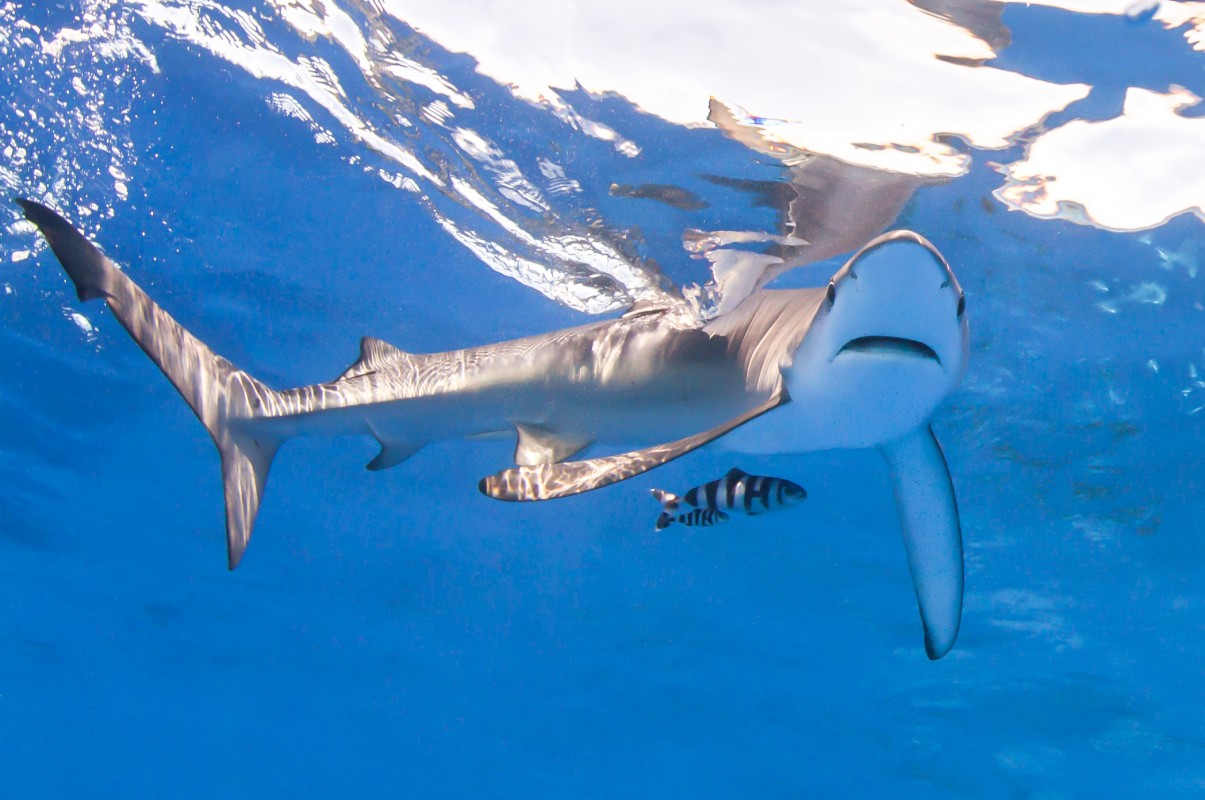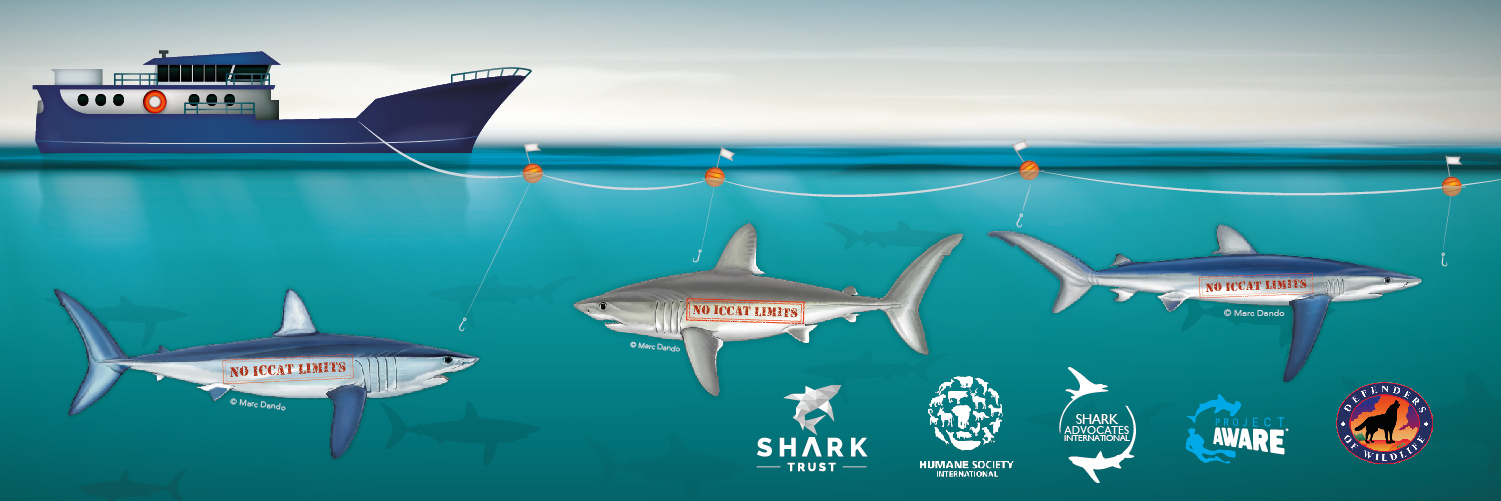Japan Blocks 4 out of 5 Shark Conservation Proposals at Atlantic Tuna Meeting

Fishing nations at the annual meeting of the International Commission for the Conservation of Atlantic Tunas (ICCAT) have once again failed to adopt scientific advice and best practices to safeguard several species of oceanic sharks.
The number of co-sponsors in an ongoing effort to strengthen the ICCAT ban on “finning” (slicing off a shark's fins and discarding the body at sea) more than doubled to an unprecedented 30 of 50 Parties, yet was quashed by Japan with support from Korea, and China. Japan also led the fight to kill EU proposals aimed at protecting common threshers and limiting catch of makos, while its attempt to raise proposed blue shark catch levels prevented consensus on that measure. The only shark measure agreed was a compromise between Canada and the EU aimed at conserving porbeagle sharks.
"We are deeply troubled that sound conservation proposals for exceptionally vulnerable sharks continue to be defeated at ICCAT, even as mandates, warnings, and public concerns grow stronger," said Sonja Fordham, President of Shark Advocates International, a project of The Ocean Foundation. "This inaction is particularly heartbreaking with respect to the proposal for a stronger shark finning ban, which was thwarted despite co-sponsorship from a majority of ICCAT Parties."
Japan led the charge to defeat the seventh attempt to strengthen the ICCAT finning ban. A record high number of Parties proposed replacing the problematic fin-to-carcass weight ratio with a more enforceable prohibition on removing fins at sea. The "fins-attached" proposal gained 16 co-sponsors at this year’s meeting – including Russia, Venezuela, Tunisia, and Nigeria -- for a total of 30 Parties. The US, EU, and Senegal all vowed to continue to promote the change. The US also secured a 2016 ICCAT review of finning ban implementation.
“We are appalled that Japan has summarily dismissed appeals for a stronger ICCAT finning ban made by a growing number of countries – developed and developing -- from all across the Atlantic,” said Ania Budziak, Associate Director for Project AWARE. “We are also particularly dismayed that Canada and Mexico chose not to co-sponsor the effort to mandate this best practice of banning at-sea shark fin removal.”
The EU and US jointly proposed the establishment of ICCAT catch limits for highly vulnerable shortfin mako sharks. The proposal was questioned by Namibia and Uruguay, and then blocked by Japan. ICCAT scientists have recommended measures to ensure shortfin mako fishing does not increase.
The EU and US also cooperated on a proposal to cap landings of heavily fished blue sharks, based on a recent population assessment. Japan’s request to increase proposed South Atlantic catch levels by 32% was accepted by the EU, but rejected as excessive by the US and Norway, resulting in no action being taken for the species.
"We are once again deeply disappointed that ICCAT did not reach consensus to cap landings of blue and mako sharks, species that lack basic limits even in the main fishing nation of Spain,” said Ali Hood, Director of Conservation for the Shark Trust. "We leave this meeting frustrated yet all the more determined to continue the campaign to end uncontrolled fishing of oceanic sharks -- under ICCAT and within the EU.”
Japan also led the effort to defeat an EU proposal to prohibit take of common thresher sharks. After six years of Canada blocking EU attempts to prohibit take of porbeagle sharks, the two Parties compromised on a measure that encourages live release and could trigger action if landings increase.




